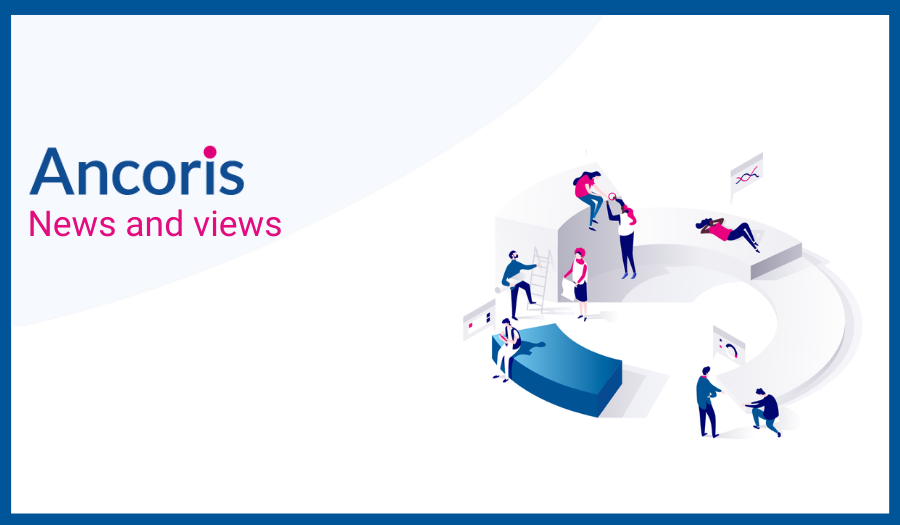It's that time of year already, when we take stock and think of what's in store for the coming year. So here we go.
Social and cloud computing will begin to come of age
Just as email displaced paper memos and letters in the workplace, 2012 will mark the beginning of a shift from email to social and collaborative computing for interaction with colleagues and external partners. Both large companies, like IT giant Atos, and small companies, like online news and reviews publisher Notebooks.com, are eliminating email by deploying collaboration solutions such as Google Docs, Google Chat and Google Voice alongside tools such as Yammer and Jive that allow organisations to create private social networks.
During the coming year, we expect more and more users to be exposed to these kinds of social and collaborative environments as employers take advantage of the flexibility and cost benefits of cloud computing by rolling out cloud-based solutions like Google Apps for Business. We believe users will rapidly start to appreciate the simplicity, speed and power of being able to share, discuss, revise and review ideas in a single place through this kind of environment.
Private clouds will be exposed as old-fashioned hosting
Vendors have muddied the cloud waters by rebranding hosting services and traditional data-centre managed services as private clouds. As more organisations begin evaluating and using cloud-based applications, and report back on their experiences, the significant differences between public cloud solutions like Google Apps, hybrid cloud applications such as Office 365 and private clouds will be laid bare.
During 2012, we expect to see more discussion on how the underlying architecture affects a range of issues, such as the speed at which services can be scaled up and down, the impact on users of an outage at a particular data center, where data is held and how it is secured, and what hardware and software users need to make use of the service.
The net result will be that it will become much clearer during the coming year what companies are really buying when they choose a private cloud or hybrid cloud, and that these services don't offer the resilience, flexibility, affordability and mobility benefits of true public cloud services.
Government push to cloud computing will reduce security fears
The coming year will see a big push into cloud computing by the UK public sector as it becomes easier to buy cloud-based services following the creation of the G-Cloud applications catalogue. For the private sector, the message is that if cloud computing is secure enough for government, it's secure enough for them.
The Government expects to open the G-Cloud "app store" in January 2012 and to have 50 accredited products in place by the end of the year, which the public sector will then be able to buy without going through a full tender process. The government's information assurance agency, the Communications Electronics Security Group (CESG), will be involved in confirming these G-Cloud services and deployments are secure.
With this kind of endorsement from security experts, we expect the general level of confidence in the security of cloud solutions to increase significantly during 2012.
Increased user mobility - virtualisation of legacy applications
Increased agility will be a critical success factor for organisations looking to weather the continuing economic turmoil in 2012. As organisations look to flex staff numbers and locations to match changing business needs, and users themselves choose to become increasingly mobile, IT departments will be asked to deliver 100% web-based access to all IT applications.
While they can turn to native cloud applications such as Google Apps for collaboration and productivity solutions, many organisations also depend heavily on specialist business applications, often customised to their specific needs.
Virtualisation will be a key technology in allowing legacy applications like these to be delivered over secure internet connections to the browser, with providers like Accenture already offering SAP as a virtualised online service. We expect to see a wider range of older packaged software offered this way, as providers offer the facility to enable existing in-house systems to be accessed through a range of browser devices. Companies such as Citrix and Ericom are now providing the capability for in-house Windows applications to be accessed remotely on devices such as the iPad and the Google Chromebook alongside cloud-native applications.
Working with our digital transformation specialists
If you're involved in the busy day to day and your teams have been working with a process a certain way for years, it can be hard to step back to imagine doing it in a totally different way.
Got an idea to transform your business and want help bringing it to life? We’re all ears. We design, build and manage customised mobile and cloud apps to meet your specific needs – either alongside your team or for you. Our early prowess in mastering APIs led to Google itself becoming a customer and us building their Exam Platform. So not only do we know our onions but you can trust us to deliver innovation and edge in spades.
If you’d like to find out more about how we can help you with your own digital transformation journey, why not take a look at some of our customer success stories or talk to our Digital Transformation Specialists.
